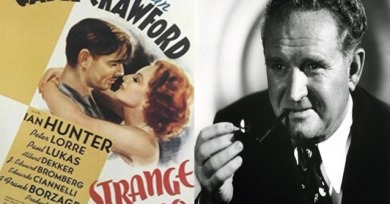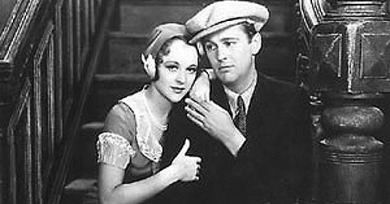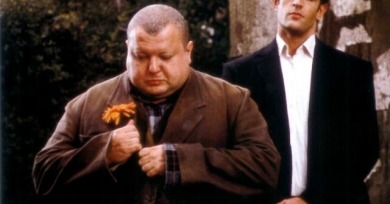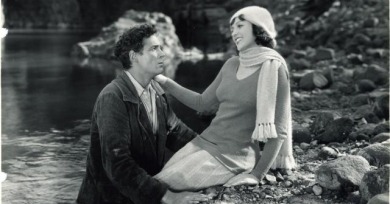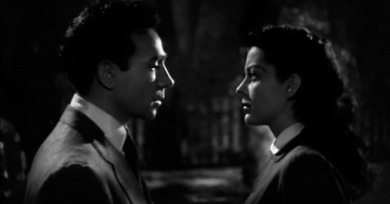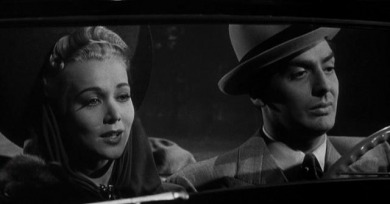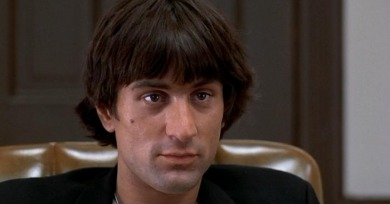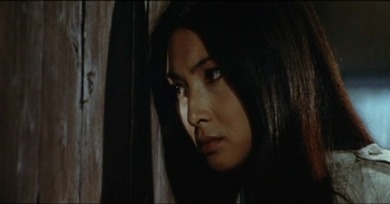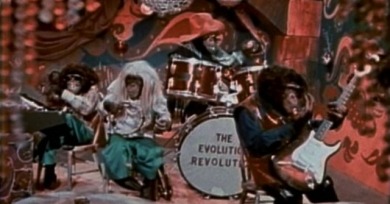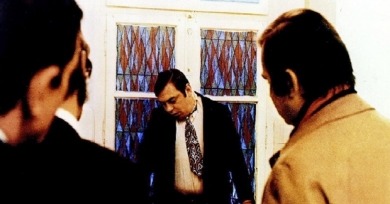Nick Pinkerton
If Private Fears in Public Places came without the Alain Resnais imprimatur attached, nobody would dream of screening it outside the Francophone market—this isn’t a slam on the movie, but it’s worth noting.
As the more familiar forms of the political movie tend to vacillate between broad-stroke caricature and puerile romanticization, there is something bracing about The Queen‘s transposition of inflated-into-distortion public figures into unsensational, speculative private lives.
Re-watching it gives the frustrating awareness of how comparatively petty many of the experiences I have—and have had—with movies are, how a diet of mediocrity accustoms me to betraying a natural expectation that art can expand its frame into the world I'm living in.
As the sixth and final week of MOMI's well-stocked overview of Frank Borzage's career arrives, it's worth taking a look back to survey the terrain that's been covered so far.
His noble poor are so over-endowed with decency that they have to go out of their way to deprecatingly hide it.
Vice and virtue may not be ideals that have survived quite intact into this century, and too much of how the critical community tends to think and talk about Borzage already highlights his distance, his antiquity.
The less said about the plot the better, for History Is Made at Night unquestionably sinks or floats on the tremendous charm of its leads, and the pleasure that comes from watching them melt together.
Though Cemetery Man is, on the whole, a very funny movie—and that’s all I usually ask—I have watched it to the point where most of its gags have worn dull, and I’m still not tired of it.
After this rampage, Allen John almost freezes to death, but for the grace of sexual healing—the film’s finale, at least in its truncated form, is Rosalee, draping herself over Allen John’s bare, ice-rimed chest to bring him to, a resurrection enacted through the pulse of flesh.
A noirish late-period corker released through borderline-B Republic, the movie boasts at least a handful of extended passages featuring what we connoisseurs like to call shit-hot filmmaking.
Having acquired Assayas’s latest film not long after its star, Maggie Cheung, very justifiably won Best Actress at Cannes 2004 for her performance in it, Palm Pictures promptly did absolutely nothing with Clean for nearly two years.
Shot for Fox during noir’s gestation period in 1941, I Wake Up Screaming starts with a silhouette-and-silky smoke backroom interrogation, then quickly abandons such squalid climes for settings more MGM than Warners.
Respectable opinions hold that Jimmy Breslin’s 1971 mob farce The Gang That Couldn’t Shoot Straight is a very funny book, and watching James Goldstone’s film of the novel from the following year, you can believe it.
"If you pay attention to the critics that’s your problem, ’cause I don’t. What they say about it—they have to express their opinions to an audience that they know in a certain given number of words, and they do it in different ways… I don’t think they’re right, and I don’t agree with almost any of them, whether they’re pro or con."
Hey, kids, do you like violence? Well, step into to the multiplex exploitation circuit, circa 2006: flip, Grand Theft Auto nihilism, a bulging pocketbook, and Quarterback-blandsome leading man, Paul Walker.
Based on a popular manga by Toru Shinohara, the Scorpion series was transmitted to celluloid with its pulp origins (virtues and limitations) very much intact—there isn’t a single character anywhere in these films whose psychology might chafe at the limitations of a comic frame.
The spy genre may have already reached the point where it’s spawned enough spoofs to outweigh its straight-ahead franchises.
When I try to find the words to praise Why Does Herr R. Run Amok?, the first thing I think of isn’t quite a compliment: it’s a scab I can’t stop picking.
Whatever reputation the film has is derived from the same logic that’s sponsored Haneke’s career, the cough syrup argument—something that tastes so bad surely has to be good for you.
Inasmuch as Blissfully Yours has a point, it is this: the quality of sunlight shining through water or filtered through a forest’s canopy, the meditative quality of sex outdoors during a perfect day, the so close, so faraway sweet sadness of lying beside someone.



